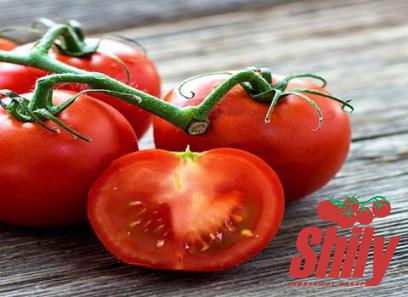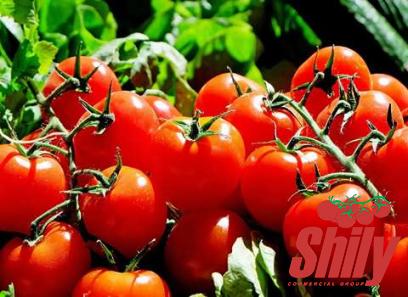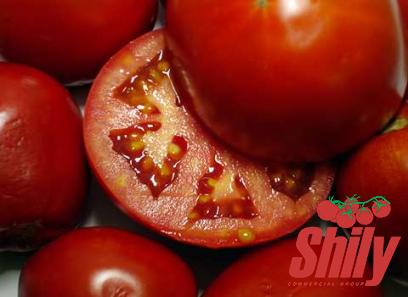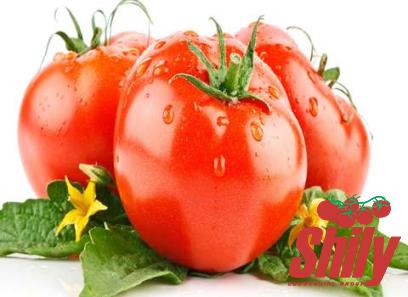The Growing Popularity of Organic Tomato Paste: A Nutritious and Sustainable Culinary Staple
Introduction:
Organic food has been gaining significant traction over the past decade, with consumers increasingly opting for healthier and more sustainable choices. Among the various organic food options, organic tomato paste has emerged as a popular and versatile ingredient in many culinary endeavors. In this summary, we explore the benefits, production methods, and market trends of organic tomato paste.
The Rise of Organic Tomato Paste:
Organic tomato paste refers to concentrated tomato pulp that is made solely from organically grown tomatoes. It has gained popularity due to its numerous health benefits and the increased awareness of the adverse effects of pesticides and artificial additives found in conventional tomato products. Organic tomato paste offers a distinct flavor profile, enhanced nutritional content, and is produced using environmentally friendly methods.
Health Benefits:
Organic tomato paste is rich in lycopene, a potent antioxidant that has been associated with numerous health benefits. Lycopene has been shown to reduce the risk of certain types of cancer, including prostate cancer, and may also contribute to heart health and eye health. Moreover, organic tomato paste contains essential vitamins and minerals, such as vitamin C, potassium, and folate, which are crucial for maintaining overall well-being.
Organic Standards and Production:
To be classified as organic, tomato paste must adhere to strict guidelines established by certified organic labeling organizations. These guidelines prohibit the use of synthetic pesticides, fertilizers, genetically modified organisms (GMOs), irradiation, or any other chemical additives. Organic farmers employ practices such as crop rotation, composting, and natural pest control methods to maintain soil fertility and reduce environmental impact.
Market Trends:
The organic food market has experienced substantial growth, and the demand for organic tomato paste has followed suit. Consumers are becoming more conscious of the importance of sustainable agriculture and the potential health risks associated with chemical-laden produce. As a result, supermarkets, health food stores, and online retailers are expanding their organic product offerings, including organic tomato paste, to cater to this growing demand.

Sustainable Farming Practices:
One of the primary reasons behind the surge in organic tomato paste’s popularity is the focus on sustainable farming practices. Organic farmers prioritize soil health, biodiversity, and water conservation. They promote natural pest control methods, crop rotation, and composting to maintain balanced ecosystems and reduce dependence on synthetic inputs. By supporting organic tomato paste, consumers contribute to the reduction of harmful agricultural practices and the preservation of natural resources.
Environmental Impact:
Conventional tomato paste production often involves the use of synthetic pesticides and chemical fertilizers, which can pollute water sources and harm surrounding ecosystems. These harmful substances can accumulate in soil and affect the health of farm workers and the broader community. In contrast, organic tomato paste production minimizes the use of such chemicals, resulting in a reduced environmental impact, improved soil quality, and enhanced biodiversity.
Flavor and Culinary Versatility:
Organic tomato paste offers a superior flavor profile compared to its conventional counterparts. The organic cultivation process allows tomatoes to fully ripen on the vine, enhancing their natural sweetness and complexity. This concentrated flavor adds depth and richness to a wide range of dishes, including pasta sauces, soups, stews, and more. The versatility of organic tomato paste makes it a beloved staple in many cuisines around the world.
Availability and Accessibility:
The availability of organic tomato paste has significantly improved over the years. It can now be found in many local grocery stores, organic food markets, and online platforms. Additionally, the expansion of organic farming practices has contributed to a more affordable price range, making organic tomato paste accessible to a wider consumer base.
Conclusion:
Organic tomato paste has become a popular choice for health-conscious consumers who prioritize sustainability and environmental responsibility. Its exceptional nutritional profile, superior flavor, and versatile culinary applications make it an ideal ingredient in various dishes. By choosing organic tomato paste, consumers contribute to a healthier and more sustainable food system while enjoying the numerous benefits it offers.The Rise of Organic Tomato Paste: A Booming Business Opportunity
1. The Growing Demand for Organic Tomato Paste:
The demand for organic tomato paste has seen significant growth in recent years, driven by the increasing number of health-conscious consumers seeking organic food options. As people become more aware of the potential health risks associated with consuming pesticides and artificial additives, they are actively seeking out organic alternatives. This has created a lucrative market for producers and sellers of organic tomato paste, with sales projected to continue rising.
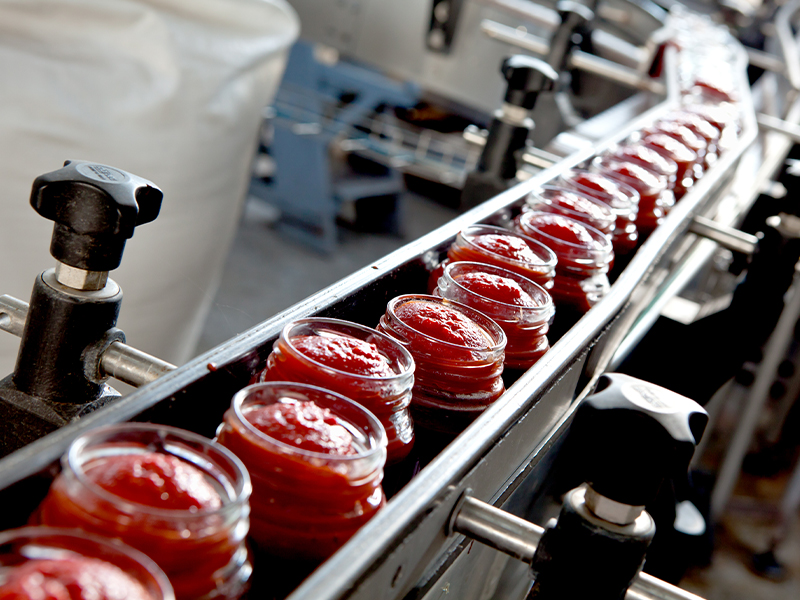
2. Market Potential and Profitability:
The organic food market, including organic tomato paste, presents a wealth of opportunities for businesses. According to recent reports, the global organic food market is expected to reach a market value of over $600 billion by 2027. Organic tomato paste, being a versatile and widely used ingredient, is well-positioned to capitalize on this market growth. By aligning their products with consumers’ growing preference for organic options, businesses can tap into this market potential and enjoy increased profitability.
3. Building Trust and Brand Reputation:
For businesses entering the organic tomato paste market, building trust and establishing a strong brand reputation are crucial. Consumers actively seek out organic products from reputable sources. By adhering to organic standards and obtaining recognized certifications, businesses can showcase their commitment to quality, sustainability, and transparency. This, in turn, fosters trust among consumers and creates a loyal customer base.
4. Differentiating from Conventional Tomato Paste:
To succeed in the organic tomato paste sector, businesses need to effectively differentiate their product from conventional tomato paste options. Emphasizing the health benefits, superior flavor, and environmental sustainability of organic tomato paste will allow businesses to position their product as a healthier and more responsible choice. By educating consumers about the advantages of organic tomato paste and highlighting the distinct qualities it possesses, businesses can stand out in a competitive market.
5. Securing the Supply Chain:
Ensuring a consistent and reliable supply chain of organically grown tomatoes is vital for businesses in the organic tomato paste industry. Developing partnerships with organic farmers or establishing their own organic farms can help secure the necessary raw materials. By working closely with farmers, businesses can enforce quality control measures and ensure that the tomatoes used in the production of organic tomato paste meet the required organic standards.
6. Processing and Production Methods:
Producing high-quality organic tomato paste involves meticulous processing and production methods. Freshly harvested organic tomatoes are carefully selected and undergo minimal processing to retain their natural flavor and nutritional content. They are then concentrated and cooked down to form a thick paste. The use of traditional processing techniques, such as slow cooking at low temperatures, helps preserve the natural attributes of the tomatoes and sets organic tomato paste apart from mass-produced alternatives.
7. Packaging and Labeling:
Effective packaging and labeling play a significant role in attracting consumers to organic tomato paste products. Using eco-friendly packaging materials, such as recyclable or biodegradable options, aligns with the sustainability principles associated with organic products. Adding clear and informative labels that highlight the organic certification, nutritional values, and recipe suggestions can further enhance the appeal and consumer trust in the product.

8. Developing Innovative Product Varieties:
To stay ahead in a competitive market, businesses can explore differentiating their organic tomato paste offerings by developing innovative product varieties. This could include options such as tomato paste with added herbs or spices, or specialty organic tomato paste made from heirloom tomato varieties. By providing unique and enticing options, businesses can attract new customers and expand their market share.
9. Marketing and Promotion Strategies:
Implementing effective marketing and promotion strategies is essential for gaining visibility and customer engagement in the organic tomato paste industry. Businesses can utilize various platforms such as social media, online advertisements, and collaborations with influencers to reach their target audience. Additionally, participating in food expos, farmer’s markets, and partnering with local retailers can help raise brand awareness and attract customers.
10. Collaborations with Restaurants and Food Manufacturers:
Forming strategic collaborations with restaurants and food manufacturers can be a lucrative avenue for businesses in the organic tomato paste industry. Restaurants can showcase the versatility of organic tomato paste by incorporating it into their menu offerings, while food manufacturers can use it as a key ingredient in their organic product lines. Such collaborations not only increase sales but also establish credibility and create a strong market presence.
11. Export Opportunities:
Organic tomato paste production offers export opportunities for businesses looking to expand into international markets. Many countries have a growing demand for organic products, presenting untapped potential for businesses to establish themselves as reliable exporters. By complying with international organic standards and partnering with reliable distributors or exporting agents, businesses can tap into these markets and enjoy increased revenue streams.
12. Continuous Product Improvement and Innovation:
To stay competitive, businesses in the organic tomato paste industry must continually strive for product improvement and innovation. This could include exploring new processing techniques to enhance flavor, incorporating customer feedback into refining the product, or investing in research and development to create new organic tomato paste formulations. By constantly evolving, businesses can keep up with changing consumer preferences and maintain a strong market position.
Conclusion:
The rise of organic tomato paste represents a significant business opportunity in the organic food industry. With increasing consumer awareness and demand for healthier and sustainable food options, businesses can capitalize on the benefits of organic tomato paste by providing high-quality products, securing a reliable supply chain, differentiating from conventional alternatives, and implementing effective marketing strategies. By embracing innovation and continuous improvement, businesses can succeed in this thriving market and contribute to a more sustainable and nutritious food future.




